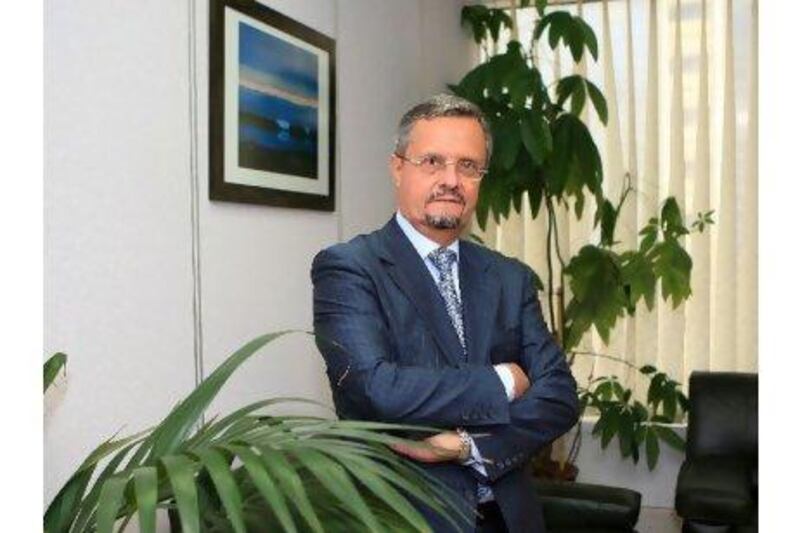Forget 3D imaging and horizontal drilling. Partex Oil and Gas, a Portuguese company vying to retain a stake in Abu Dhabi's biggest oil concession, has a more emotional selling point.
"We are not a major. We are not aiming at competing with ExxonMobil or Shell," said Jose Pereira, the Middle East representative of Partex. "Let me put it in a broader scope. The unique feature that characterises Partex is that the whole of our dividends, in a way, revert to mankind."
The emirate's largest concession expires in 2014 after a 75-year run, and its five foreign shareholders - Partex, with 2 per cent, and BP, ExxonMobil, Royal Dutch Shell and Total, with 9.5 per cent each - are campaigning to keep their slice of the pie. At stake is 1.4 million barrels per day (bpd) of production capacity, half the UAE's total.
To sway the emirate's leaders, the major oil companies are showcasing patented technologies to draw oil from mature fields. The advances include drills that can be directed horizontally for 10 km and three-dimensional subsurface imaging showing how crude oil moves through tiny pores in the rock.
But Partex - a small player owned by a non-profit foundation - is appealing to Abu Dhabi's heart.
Partex is one of the relics of the early days of oil exploration in the Middle East, and it is not afraid to say so.
It was founded by Calouste Gulbenkian, an Armenian entrepreneur who became an intermediary between the Gulf sheikhs and Western oil speculators in the early 20th century. He became known as "Mr Five Per Cent" for taking equity in deals he helped to negotiate.
Earlier this year, Partex presented Yousef Omair bin Yousef, the then-chief executive of Abu Dhabi National Oil Company (Adnoc), with a reminder of Partex's legacy, a white brochure telling the history of the company's work in the emirate.
The book's title - 75 Years: Contributing to the Oil and Gas Industry in Abu Dhabi - is optimistic, given that Partex has spent only 72 years in the emirate so far.
The original concession was signed in 1939 between Abu Dhabi and its foreign partner, which in those days went by the name of Petroleum Development (Trucial Coast) Ltd. Since then, Partex has been a largely silent partner in the consortium.
But Partex has a track record of successfully renewing other regional concessions in recent years, including one in Oman and one with Adnoc's natural-gas-processing subsidiary, Gasco.
To win this one, Partex is emphasising its long history in the region and its unusual ownership. The company is held by a foundation that owns an art museum and does charitable work in various countries, including the UAE.
It is also relying on the technological offering of its fellow consortium members.
"One of the arguments we can use with Adnoc is, 'which companies, IOCs [international oil companies], can provide technology that the five of us cannot?'" said Mr Pereira. "But, of course, we cannot prevent Abu Dhabi and the Government from bringing other partners to the concession. It's their property."
Renegotiating terms for the Abu Dhabi Company for Onshore Oil Operations (Adco), as the Abu Dhabi concession is called, is a tough order, Mr Pereira acknowledges. He and executives of Adco's shareholder oil companies say incentives need to be improved to attract the necessary technological expertise.
Under the current terms, the shareholder oil companies that extract the oil get US$1 for every barrel they pump, which Mr Pereira called "one of the harshest" financial arrangements under which Partex operates.
"If you have your own money, and you want to invest it, where are you going to invest it? In the bank, which gives you a better return," said Mr Pereira. "We don't want to leave Abu Dhabi. Of course not. We have been here with these terms and conditions for a good number of years.
"But," he added, "it's a two-way street."





